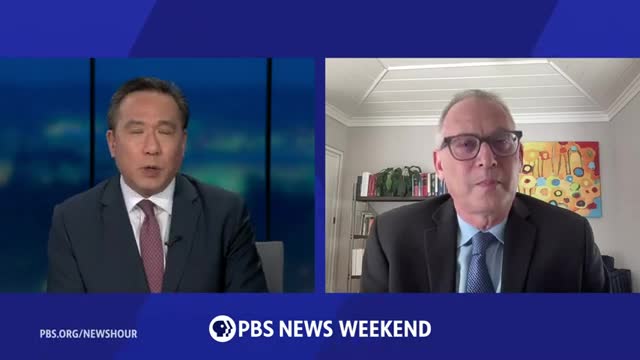Biden's historic campaign exit reshapes 2024 election landscape

This article was created by AI summarizing key points discussed. AI makes mistakes, so for full details and context, please refer to the video of the full meeting. Please report any errors so we can fix them. Report an error »

In a significant turn of events, President Biden has announced the end of his reelection campaign, a decision that has sent shockwaves through the political landscape. This unprecedented move comes less than four weeks before the Democratic National Convention, marking a stark contrast to historical precedents where past presidents, such as Harry Truman and Lyndon Johnson, withdrew much earlier in the election cycle.
Political analysts note that Biden's decision appears to stem from growing concerns regarding his physical and cognitive abilities to serve another term. This has raised questions about his health, which have intensified following a lackluster performance in a recent debate that the Biden team had hoped would bolster his campaign. The fallout from that debate has led to increasing calls for the president to reconsider his candidacy, culminating in this recent announcement.
Election law expert Rick Hasson emphasized the need for a clear process moving forward, suggesting that the Democratic Party must finalize its ticket promptly to avoid potential legal challenges. He indicated that a virtual roll call could be a viable solution to solidify the party's nominee by early August.
Judy Woodruff, reflecting on the historical context of this moment, noted that while past presidents have faced significant pressures leading to their withdrawal, Biden's situation is unique due to the timing and the nature of the concerns surrounding his health. The implications of this decision could resonate beyond party lines, prompting a reevaluation of the political landscape as voters and party members grapple with the ramifications of Biden's exit from the race.
As the Democratic Party navigates this unexpected shift, the potential for unity or further division among voters remains uncertain. Observers are left to ponder whether this moment will serve as a catalyst for change or exacerbate existing divides within the electorate.
Political analysts note that Biden's decision appears to stem from growing concerns regarding his physical and cognitive abilities to serve another term. This has raised questions about his health, which have intensified following a lackluster performance in a recent debate that the Biden team had hoped would bolster his campaign. The fallout from that debate has led to increasing calls for the president to reconsider his candidacy, culminating in this recent announcement.
Election law expert Rick Hasson emphasized the need for a clear process moving forward, suggesting that the Democratic Party must finalize its ticket promptly to avoid potential legal challenges. He indicated that a virtual roll call could be a viable solution to solidify the party's nominee by early August.
Judy Woodruff, reflecting on the historical context of this moment, noted that while past presidents have faced significant pressures leading to their withdrawal, Biden's situation is unique due to the timing and the nature of the concerns surrounding his health. The implications of this decision could resonate beyond party lines, prompting a reevaluation of the political landscape as voters and party members grapple with the ramifications of Biden's exit from the race.
As the Democratic Party navigates this unexpected shift, the potential for unity or further division among voters remains uncertain. Observers are left to ponder whether this moment will serve as a catalyst for change or exacerbate existing divides within the electorate.
View full meeting
This article is based on a recent meeting—watch the full video and explore the complete transcript for deeper insights into the discussion.
View full meeting